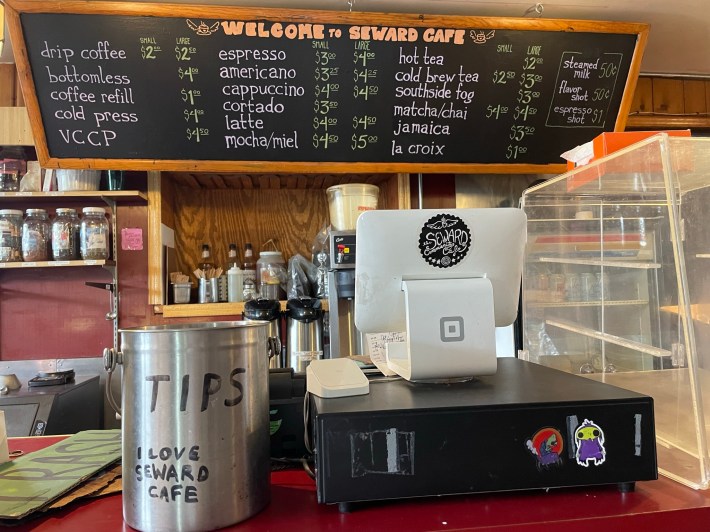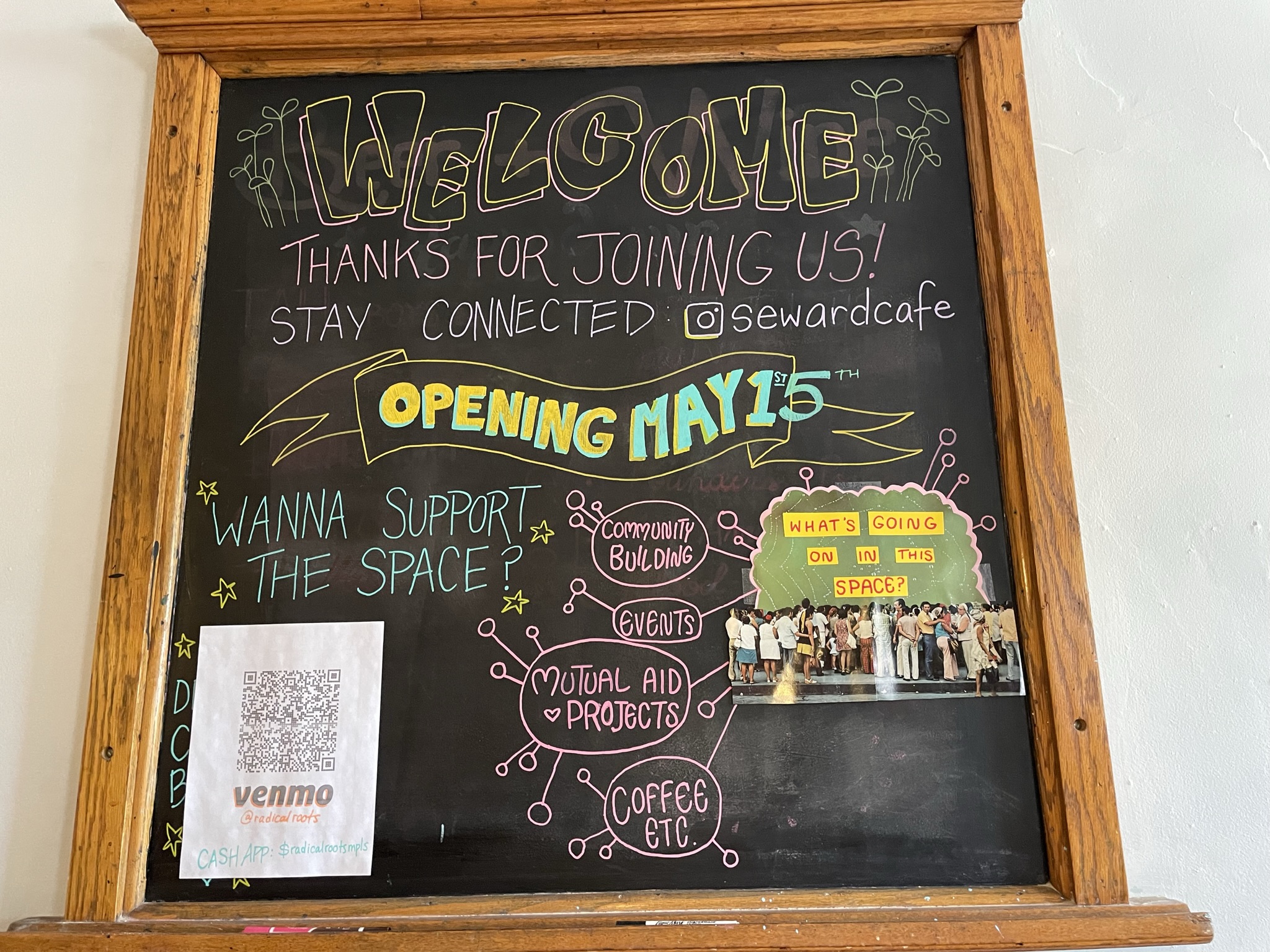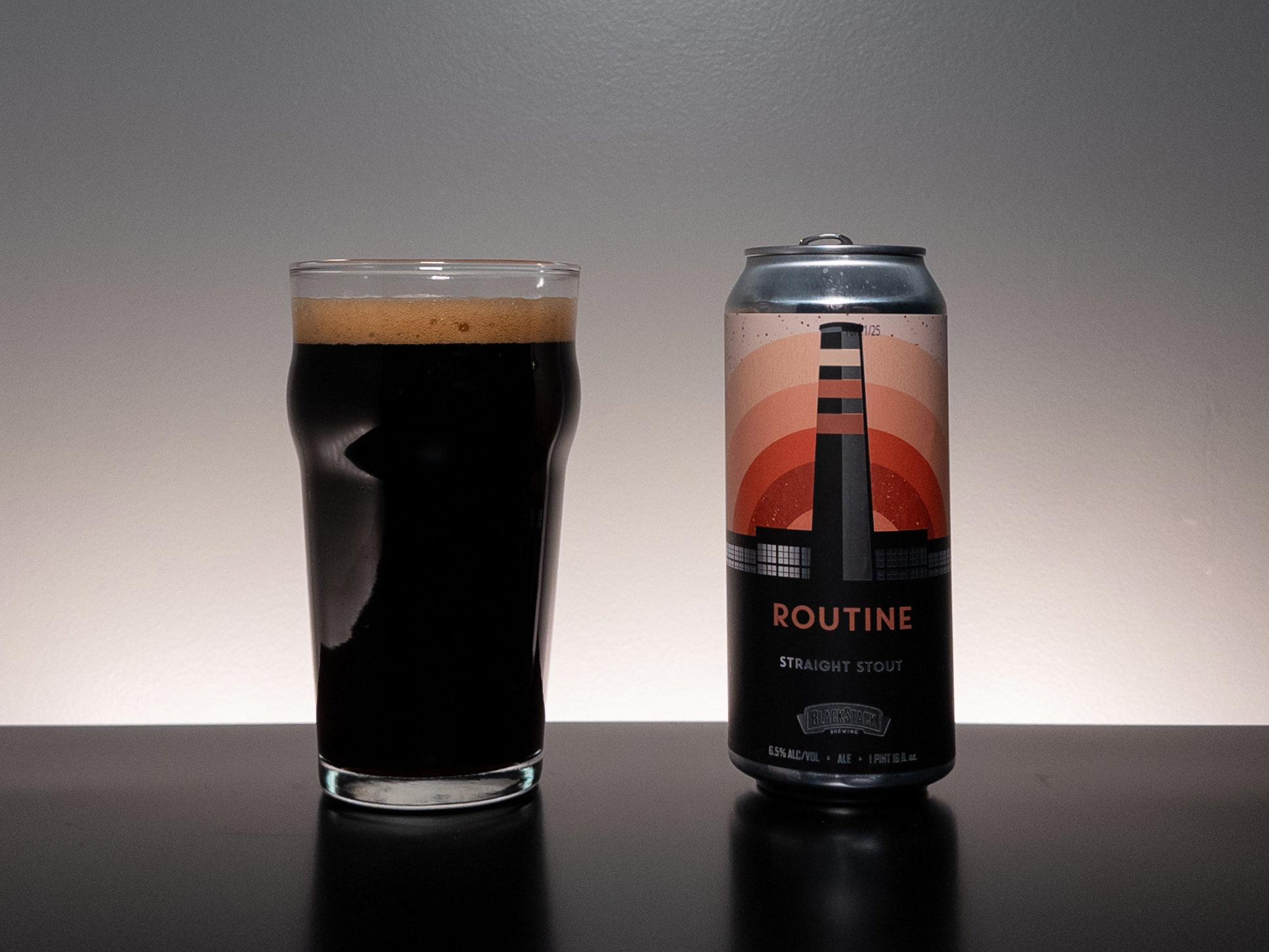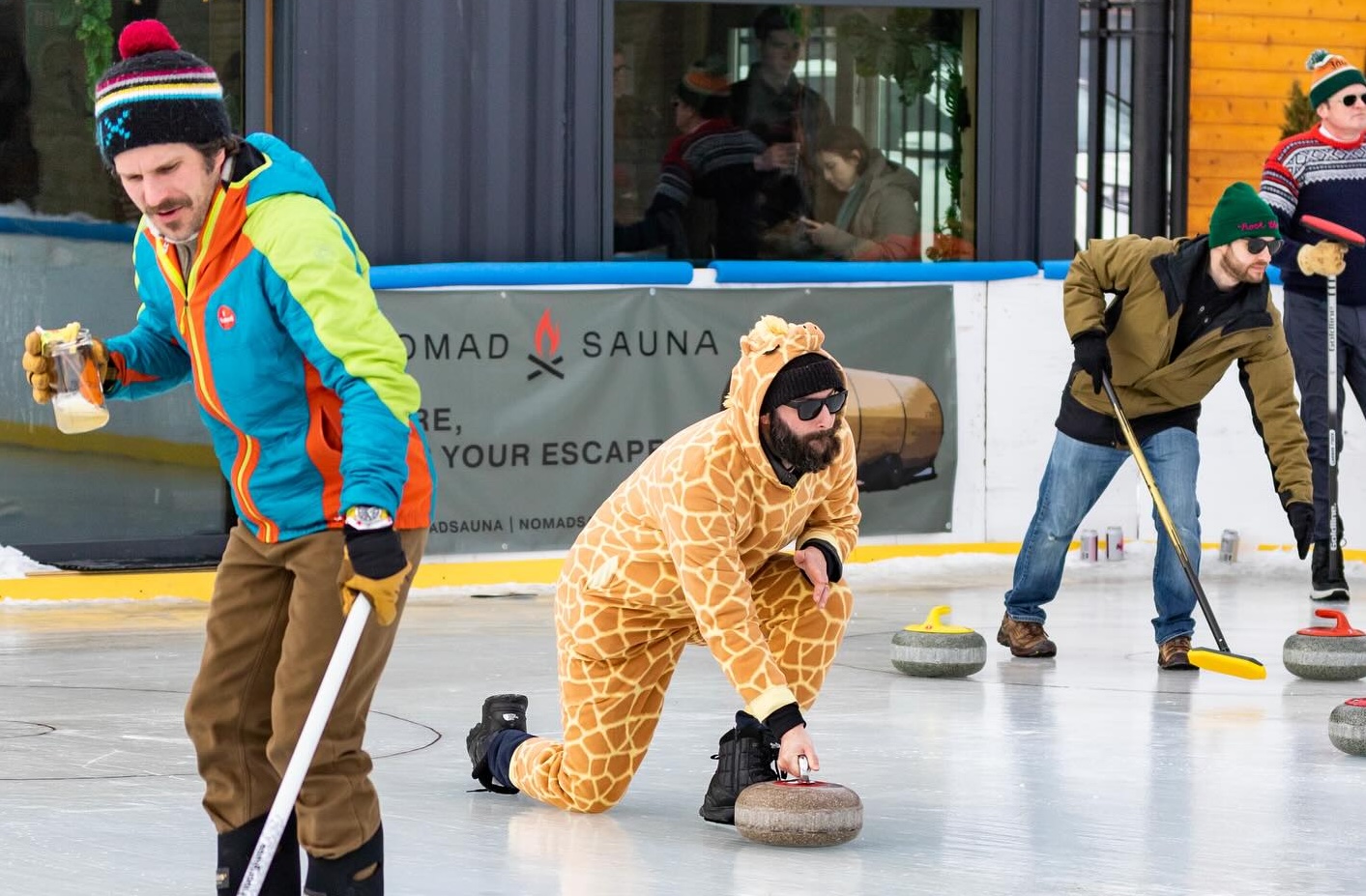It’s not your grandma’s Seward Cafe anymore. After a three-year hiatus, the neighborhood mainstay is back in (collective) action on May 15, and some of the old favorites, like Jupiter bars and creative tea blends, are back as well. But the new crew in charge is also making some changes.
One major point that they want to address is the overwhelming whiteness of past collectives. “BIPOC, especially [queer and trans] BIPOC, had felt like there wasn't space for them here,” says Sign, one of six members of the group that now runs the cafe. “I would really love the space to be run by QTBIPOC and supported by white allies. I want to kind of undo the energy that has been in here.”
When the Seward Community Cafe reopens its doors for the first time since March 2020, it will be carrying on a legacy of cooperative ownership and community-based food service that dates back five decades. Stepping into a place with that much history has been exciting for the new collective, even as it has had its challenges, says Sign. It’s been a delicate balance of making 2129 E. Franklin Ave. their own while maintaining the cafe’s founding principles.
The cafe was started on Franklin Avenue in October 1974 by a group of young people who were heavily involved in the leftist political movement of the time. It grew in tandem with a considerable cooperative economy that had been gaining traction. In 1977, the Seward Cafe was one of dozens of worker-cooperative businesses in the metro area, with services ranging from hardware stores to print publications and the food co-ops that still exist today.

Barbara Jensen and Lori Zuidema were both 21 when they started working at the Seward Community Cafe at the time of its opening. They say that in its early days, the cafe wasn’t exactly a fine dining experience. “It was funky. And we weren’t the best house cleaners,” Zuidema says. “Not the best cooks either,” Jensen is quick to add.
Jensen says that the young staff reveled in the lack of supervision as they designed the kind of place that they wanted to see in their neighborhood. “We didn't have any rules. We locked the door at night, we lit up a joint, we talked, we argued politics into the night, we did whatever we wanted,” she says.
From the beginning, they operated as a collective, committed to making decisions by consensus. The cafe was always closed one day a week for collective meetings, which could be long, arduous processes of coming to unanimous agreement. Instead of paying workers a wage, the base assumption was that everyone was there as a volunteer, and then, Jensen says, they would pool all the revenue. “At the end of the month, we’d say, ‘who needs money?’ If somebody needed it, we made sure that everybody’s rent was paid.”
Throughout the 1980s and 1990s, the number of co-ops in the Twin Cities dropped dramatically. The Seward Cafe managed to survive as one of only a handful of co-ops left in the cities, and it still carries the title of the oldest collectively operated, worker-run restaurant in the country.
Which brings us to today. Sign says that the younger crew has been talking with members of prior collectives about how to honor the cafe’s past, while expressing a need for independence from the expectations of people who previously ran it. “A lot of white folks are very opinionated about how we should do it,” they say. “Respectfully, I say it's not your space anymore. It's a space that you used to be in, it's a space that you do know and I'm grateful for the knowledge that you could give, but if you wanted to do it, you'd be doing it.” One plan in the works is to decorate a section of the cafe as a scrapbook wall, full of photos and mementos from past eras.
In the three years since the cafe’s closure, the building has become home to Southside Food Share, the Seward Free Store, and several other mutual aid projects that will share the space with the cafe. Fans of the Earth Bowl and the Righteous Pancakes will have to wait because, at least to start out, the cafe will not be serving hot food. Southside Food Share will continue to work out of the kitchen, leaving only the front area for cafe operations.
Although the cafe won’t be at full capacity as it was before the pandemic, Sign says that “being a cafe is just one petal of what is actually going on.” Their big vision behind the project is to use the shell of the old Seward Cafe—the building, the legal structure, the articles of incorporation—to build a new economy that is based on the power of gifts, not endless profit.
In addition to selling coffee and other goodies, the Seward will now host what Sign calls “white punk shows, Southside shows” throughout the spring. They want to turn the cafe into a vehicle for wealth redistribution. “We're working on event documents that say how much it would be to rent the space, and here's what we will take in trade or goods. We want all your offers. It doesn't have to be capital,” they say, while adding that they feel good about accepting money offers from white people who want to use the building. “That money will go towards QTBIPOC-focused events, because we know that marginalized communities need that to be free.”

Sign says that once the latest iteration of the cafe gets off the ground, the new crew hopes to turn it into an events space to host skill shares, art creation events, workshops, and concerts outside of regular business hours. New staff are hired with the understanding that they will work half-time as baristas and spend their other hours working to improve the cafe and its role in the community, Sign says, whether that means picking up social media responsibilities, organizing events, working in the garden, or any other projects they're excited about.
“I want to just offer to people something that sparks that fire in them to be like, ‘Oh, wait a second. There's more than this bullshit box inside of a box inside of a box that's just cutting down trees to make money for more boxes,’” they say. They’re starting with the cafe to build on elements of a long history of cooperation to create something they believe in for the future.







